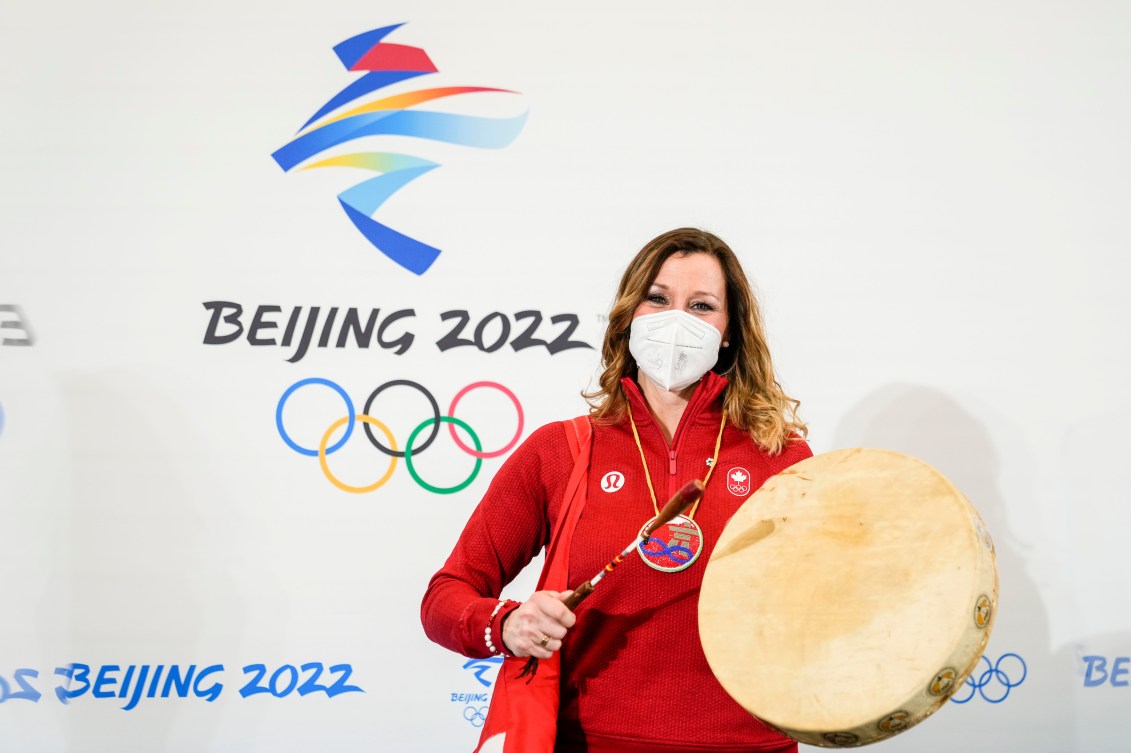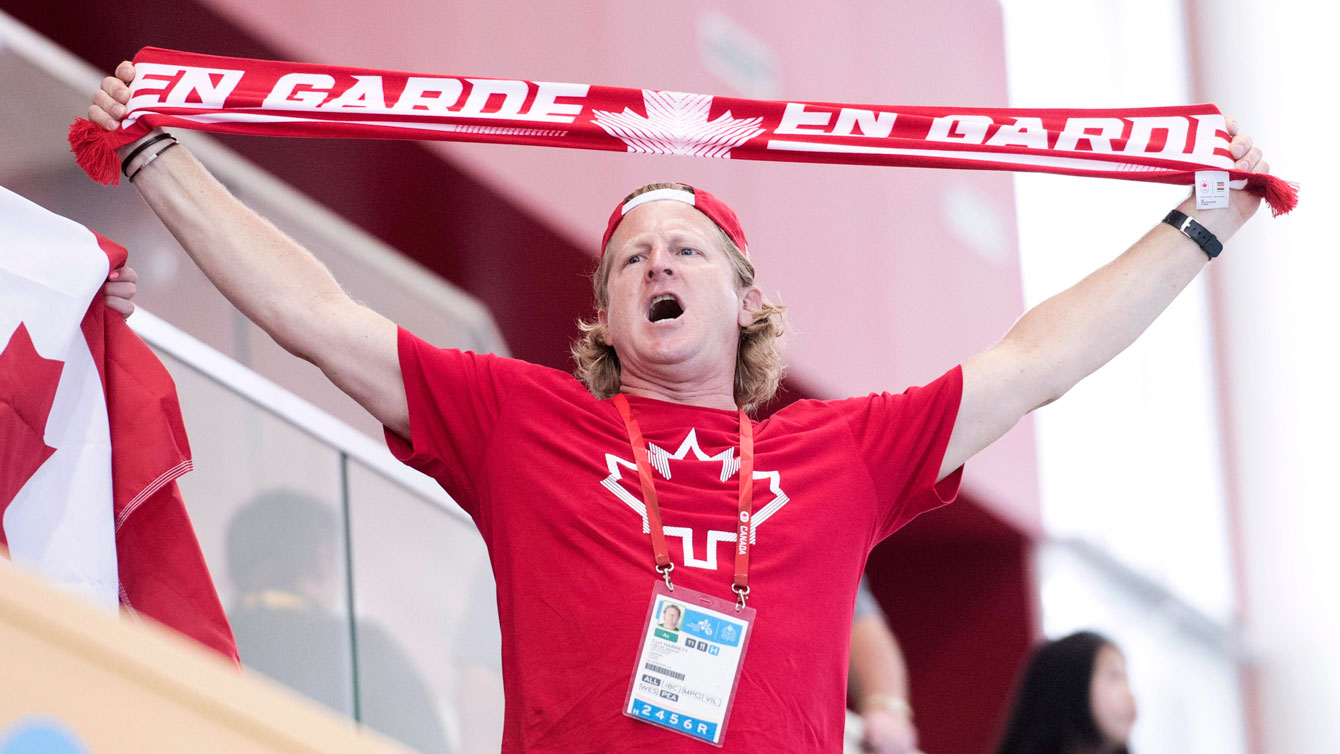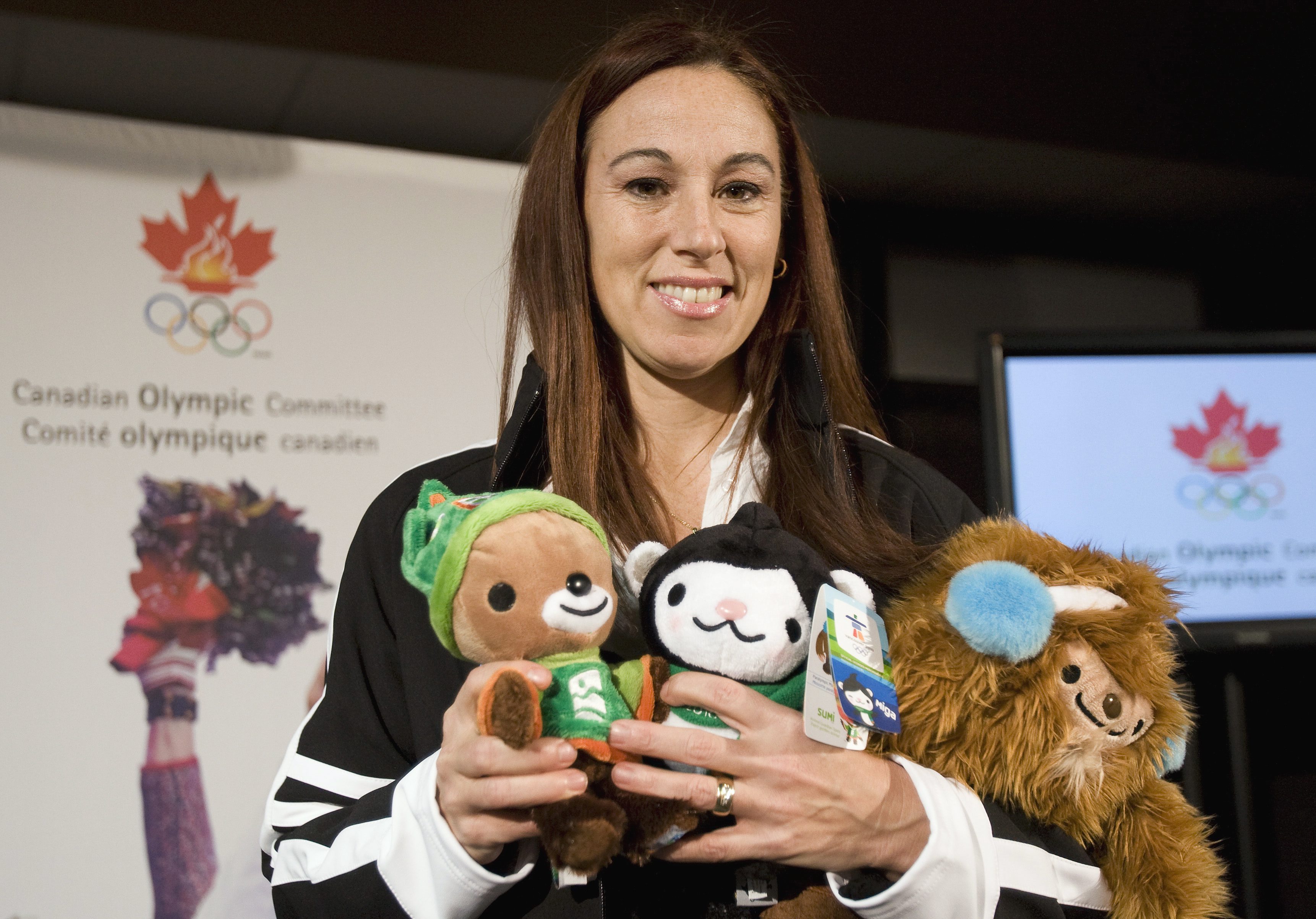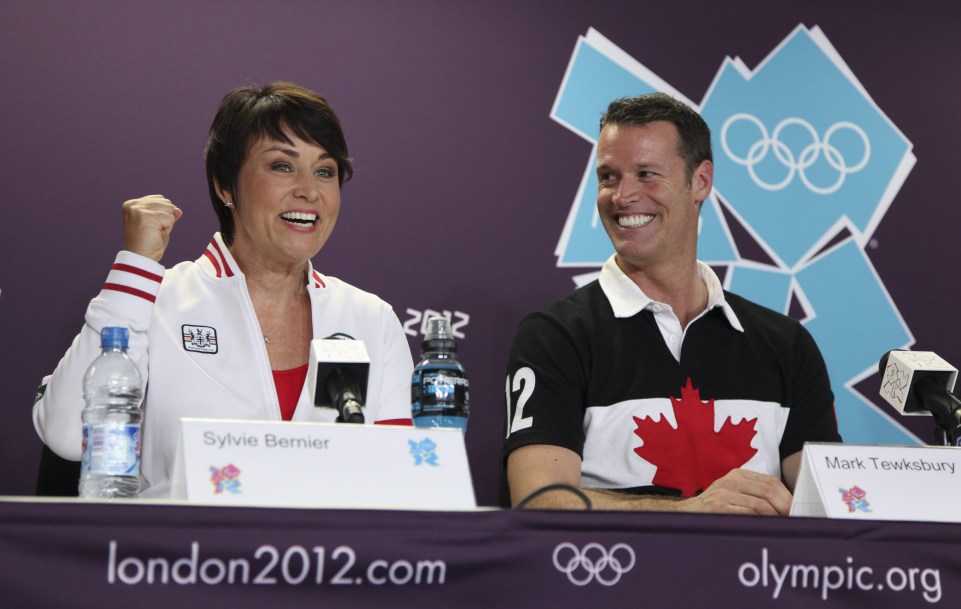FAQ: What is a Chef de Mission?
For every multi-sport Games – whether that be the Olympic Games, the Pan American Games, or the Youth Olympic Games – Team Canada is led by a Chef de Mission.
But what does that title mean? Who can fill the role? And what do they actually do?
We’ve answered some of the most frequently asked questions about the Chef de Mission.
What is a Chef de Mission?
Translated directly from French, the title means “head of mission”. In the sports context, it usually refers to the person who leads a national delegation – including athletes, coaches, and other behind-the-scenes team members who form the Mission Team – at an international competition.

What are the responsibilities of a Chef de Mission?
One of the primary responsibilities of Team Canada’s Chef de Mission is to be the spokesperson for the entire team in the lead up to and during the Olympic or Pan Am Games. They are also a mentor, supporter, and cheerleader who aims to motivate and inspire the team while protecting the performances of the athletes.
Their duties begin well before the Games as they participate in events such as preparation seminars for athletes, coaches, and Mission Team members and serve on several Games-related committees, such as the one that finalizes team selections and the one that selects Team Canada’s flag bearers for the Opening and Closing Ceremonies.
Is the Chef de Mission paid a salary?
For Team Canada, the Chef de Mission is primarily a volunteer position, with honoraria provided for some public appearances.

Who can be a Chef de Mission?
Every country uses its own criteria to select a Chef de Mission. For Team Canada, the key position is filled by an athlete who represented the country in international competition, particularly multi-sport Games.
To be the Chef de Mission at an Olympic Games, the athlete must be an Olympian themselves. They are also eligible to be Chef de Mission for the Pan Am Games or Youth Olympic Games. Athletes who only competed at the Pan Am Games are eligible to be Chef de Mission for the Pan Ams or Youth Olympic Games. Athletes who only competed at the Youth Olympic Games can apply to be Chef de Mission of those Games.
What are the requirements to become a Chef de Mission?
It is vital that the credibility of Team Canada’s Chef de Mission be impeccable. Therefore, they cannot have served any sanction under the Olympic Charter, World Anti-Doping Code, or any applicable policies and guidelines of the Canadian Olympic Committee, the International Olympic Committee or Panam Sports.

As the spokesperson for Team Canada, it is important that the Chef de Mission be comfortable and accomplished as a public speaker and have strong communications skills.
Leadership and team building are also key skills as well as a commitment to creating an environment in which athletes can compete to the best of their abilities. They should be passionate about sport and contribute to the sport community.
Ideally, they’ve been part of a Canadian Mission Team before and can communicate effectively in English and French. Being an Olympic medallist is always a nice bonus.
Who selects the Chef de Mission?
For Team Canada, the Chef de Mission Selection Committee includes the COC President, the COC’s Chief Executive Officer, a representative of the COC Athletes’ Commission, a member of the COC Board of Directors, the Chefs de Mission of the most recent and corresponding Games (ie: for the Olympic Winter Games the Chef of the previous Olympic Winter Games and the most recent Olympic Summer Games), and the COC’s Chief Sport Officer in a non-voting role.
Has Team Canada always had a Chef de Mission?
London 1908 were the first Olympic Games at which Canada was represented by an official delegation (as opposed to individual athletes and sports teams entering Paris 1900 and St. Louis 1904). From 1908 to 1936, the leader of the Canadian Olympic Team was known by the titles of Team Manager or General Manager.
It was in 1948 that the title of Chef de Mission was first used by the Canadian Olympic Team.
Who have been Team Canada’s Chefs de Mission?
In earlier Games, the Chef de Mission position was filled primarily by sports administrators or volunteer sport leaders. Some of them had been Olympians themselves, such as James Worrall, who after competing at Berlin 1936 was an Assistant Chef de Mission at London 1948 and Helsinki 1952 before serving as Chef de Mission at Melbourne 1956 and Rome 1960, which preceded his term as COC President.

Since Beijing 2008, Team Canada’s Chef de Mission has consistently been an Olympian.
The list of Team Canada’s Chefs de Mission, as well as their Assistant Chefs de Mission, for the summer and winter Olympic Games is in the table below. Olympians who later served as Chef or Assistant Chef de Mission are noted by an asterisk and their sport.
Starting at PyeongChang 2018, the Assistant Chef role was replaced by a more clearly defined Athlete Mentor role on the Mission Team.
| Season | Olympic Games | Role | Name | Sport |
|---|---|---|---|---|
| Summer | Paris 2024 | Chef | Bruny Surin* | Athletics |
| Winter | Beijing 2022 | Chef | Catriona Le May Doan* | Long Track Speed Skating |
| Summer | Tokyo 2020 | Chef | Marnie McBean* | Rowing |
| Winter | PyeongChang 2018 | Chef | Isabelle Charest* | Short Track Speed Skating |
| Summer | Rio 2016 | Chef | Curt Harnett* | Track Cycling |
| Assistant | Isabelle Charest* | Short Track Speed Skating | ||
| Assistant | Carol Huynh* | Wrestling | ||
| Winter | Sochi 2014 | Chef | Steve Podborski* | Alpine Skiing |
| Assistant | Jean-Luc Brassard* | Freestyle Skiing | ||
| Assistant | France St-Louis* | Ice Hockey | ||
| Summer | London 2012 | Chef | Mark Tewksbury* | Swimming |
| Assistant | Sylvie Bernier* | Diving | ||
| Winter | Vancouver 2010 | Chef | Nathalie Lambert* | Short Track Speed Skating |
| Assistant | Steve Podborski* | Alpine Skiing | ||
| Assistant | Joé Juneau* | Ice Hockey | ||
| Summer | Beijing 2008 | Chef | Sylvie Bernier* | Diving |
| Assistant | Peter Giles* | Canoe/Kayak Sprint | ||
| Winter | Turin 2006 | Chef | Shane Pearsall | |
| Assistant | Sylvie Bernier* | Diving | ||
| Summer | Athens 2004 | Chef | David Bedford | |
| Assistant | Nathalie Lambert* | Short Track Speed Skating | ||
| Winter | Salt Lake City 2002 | Chef | Sally Rehorick | |
| Assistant | Shane Pearsall | |||
| Summer | Sydney 2000 | Chef | Diane Jones Konihowski* | Athletics |
| Assistant | Betty Dermer-Norris | |||
| Winter | Nagano 1998 | Chef | Brian Wakelin | |
| Assistant | Bob Rogers | |||
| Summer | Atlanta 1996 | Chef | Michael Chambers | |
| Assistant | Sylvia Sweeney* | Basketball | ||
| Winter | Lillehammer 1994 | Chef | Bill Warren | |
| Assistant | Sally Rehorick | |||
| Summer | Barcelona 1992 | Chef | Ken Read* | Alpine Skiing |
| Assistant | Sylvie Bigras | |||
| Winter | Albertville 1992 | Chef | Walter Sieber | |
| Summer | Seoul 1988 | Chef | Carol Anne Letheren | |
| Assistant | Yves Tetreault | |||
| Winter | Calgary 1988 | Chef | Jean Grenier | |
| Assistant | Brian Wakelin | |||
| Summer | Los Angeles 1984 | Chef | John Lecky* | Rowing |
| Assistant | Bill Cox | |||
| Winter | Sarajevo 1984 | Chef | Bob Hindmarch | |
| Assistant | Jean Grenier | |||
| Summer | Moscow 1980 | Chef | Denis Whitaker | |
| Winter | Lake Placid 1980 | Chef | Marcel de la Sablonnière | |
| Assistant | Sigrid Chatel* | Fencing | ||
| Assistant | Peter Duncan | |||
| Summer | Montreal 1976 | Chef | Maurice Allen | |
| Assistant | Patricia Smith | |||
| Assistant | Gilles Chattel | |||
| Winter | Innsbruck 1976 | Chef | Don Goodwin | |
| Assistant | Linda Crutchfield* | Alpine Skiing/Luge | ||
| Assistant | John Pickett | |||
| Summer | Munich 1972 | Chef | Maurice Allen | |
| Assistant | Don Goodwin | |||
| Assistant | Richard Pound* | Swimming | ||
| Winter | Sapporo 1972 | Chef | Frank Shaughnessy Jr* | Ice Hockey (USA) |
| Assistant | Ken Murray | |||
| Assistant | Pat Ramage | |||
| Summer | Mexico City 1968 | Chef | E. Howard Radford | |
| Assistant | Maurice Allen | |||
| Assistant | Bill Parish | |||
| Winter | Grenoble 1968 | Chef | Frank Shaughnessy Jr* | Ice Hockey (USA) |
| Assistant | Vic Emery* | Bobsleigh | ||
| Summer | Tokyo 1964 | Chef | E. Howard Radford | |
| Assistant | J.H Bowen | |||
| Assistant | Bill Parish | |||
| Winter | Innsbruck 1964 | Chef | Frank Shaughnessy Jr* | Ice Hockey (USA) |
| Assistant | Grant Boyd | |||
| Assistant | Bud Clark | |||
| Summer | Rome 1960 | Chef | James Worrall* | Athletics |
| Assistant | E. Howard Radford | |||
| Winter | Squaw Valley 1960 | Chef | Frank Shaughnessy Jr* | Ice Hockey (USA) |
| Summer | Melbourne 1956 | Chef | James Worrall* | Athletics |
| Assistant | E. Howard Radford | |||
| Stockholm 1956 (Equestrian) | Chef | George Jacobsen | ||
| Winter | Cortina d’Ampezzo 1956 | Chef | Frank Shaughnessy Jr* | Ice Hockey (USA) |
| Summer | Helsinki 1952 | Chef | Kenneth P. Farmer* | Ice Hockey |
| Assistant | James Worrall* | Athletics | ||
| Assistant | J.W. Davies | |||
| Winter | Oslo 1952 | Chef | W.T. Pickering | |
| Summer | London 1948 | Chef | Nelson C. Hart | |
| Assistant | James Worrall* | Athletics | ||
| Assistant | J.W. Davies | |||
| Winter | St. Moritz 1948 | Chef | ||
| Summer | Berlin 1936 | Chef | Sam Manson | |
| Winter | Garmisch-Partenkirchen 1936 | Chef | ||
| Summer | Los Angeles 1932 | Chef | M.M. Robinson | |
| Winter | Lake Placid 1932 | Chef | ||
| Summer | Amsterdam 1928 | Chef | Dr. A.S. Lamb | |
| Assistant | T.R. Loudon | |||
| Winter | St. Moritz 1928 | Chef | ||
| Summer | Paris 1924 | Chef | Dr. A.S. Lamb | |
| Winter | Chamonix 1924 | Chef | ||
| Summer | Antwerp 1920 | Chef | ||
| Summer | Stockholm 1912 | Chef | ||
| Summer | London 1908 | Chef | J. Howard Crocker |


